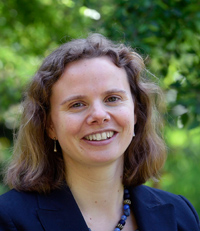Tessa Quax ontvangt Beijerink Premie
Tessa Quax van het Groningen Biomolecular Sciences and Biotechnology Institute (GBB) ontvangt de Beijerinck Premie 2022 van de KNAW ter waarde van EUR 25.000 voor haar onderzoek op het gebied van microbiële virologie. Zij krijgt de premie uitgereikt op het Dutch Annual Virology Symposium op 3 maart 2022. De premie wordt jaarlijks uitgereikt aan een onderzoeker die aan het begin van zijn of haar carrière staat en die aan een Nederlandse wetenschappelijke instelling excellent virus-georiënteerd onderzoek verricht.

Tessa Quax bestudeert de mechanismen waarmee virussen micro-organismen – archaea – infecteren. Archaea zijn eencelligen die onder andere in zoutmeren en hete bronnen voorkomen. Quax begon haar carrière aan het Insitut Pasteur in Parijs, waar ze virussen uit hete bronnen onderzocht. Haar passie voor virussen en archaea leidde haar naar gerenommeerde onderzoeksinstituten in België en Duitsland, waar ze zich specialiseerde in moleculaire technieken om archaea en hun virussen te onderzoeken. Sinds 2021 is ze Associate Professor aan de RUG. Haar onderzoek draagt bij aan een beter begrip van de rol van virussen in de natuur en van het ontstaan en de evolutie van virussen in het algemeen.
Onlangs ontving Tessa Quax ook een ERC Starting Grant en een KNAW Early Career Award.
Meer nieuws
-
10 februari 2026
Waarom slechts een klein aantal planeten geschikt is voor leven
-
09 februari 2026
Kunnen we de aarde de andere kant op laten draaien?
